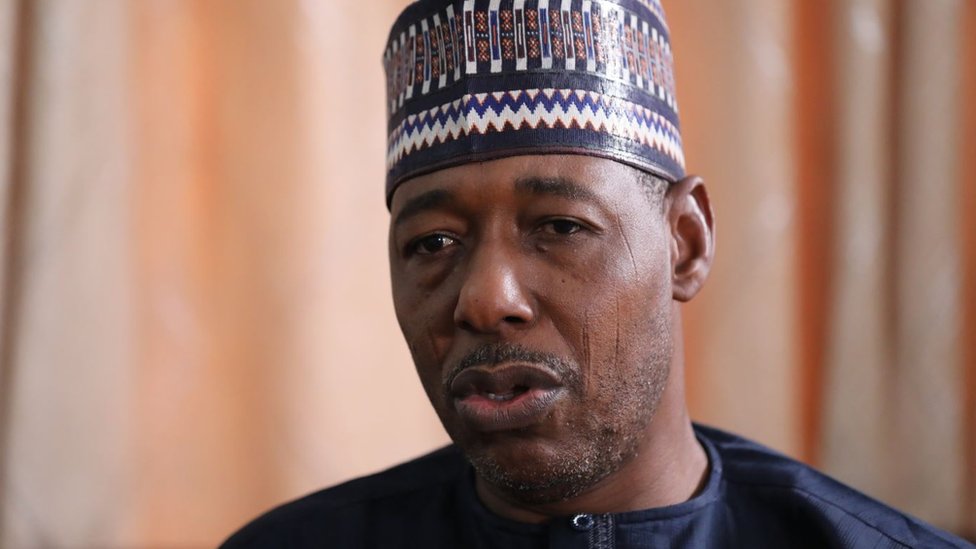Insurgency: Zamfara gov seeks new strategy, Zulum defends repentant B’Haram
Governor Bello Matawalle of Zamfara State has sought a change in security strategy to tackle insurgency in the country. He spoke during the state visit by President Mohammed Bazoum of Niger Republic to President Muhammadu Buhari. Niger President thanks Nigeria over $1.96bn Kano-Katsina-Maradi railway project Senate panel probes sale of 1.7m barrels of crude by […]

Borno State Governor Babagana Zulum
Governor Bello Matawalle of Zamfara State has sought a change in security strategy to tackle insurgency in the country.
He spoke during the state visit by President Mohammed Bazoum of Niger Republic to President Muhammadu Buhari.
- Niger President thanks Nigeria over $1.96bn Kano-Katsina-Maradi railway project
- Senate panel probes sale of 1.7m barrels of crude by EFCC
He said at present, a joint task force between the Nigerian and Nigerien security personnel has been sharing intelligence to deal with the terrorists, adding that his government had been providing some logistic and cash in order to ease their operation.
Governor Babagana Zulum of Borno State, while answering questions on what could be done to ensure that banditry did not last for 20 years like Boko Haram, stressed the need to enhance the means of livelihood of the communities living in Nigeria, especially in the northern part of the country.
He said the underlying causes of insurgency such as poverty, infrastructure deficit and climate vulnerabilities must be addressed, adding that it was important to reduce poverty in the region.
On his take on the people kicking against rehabilitating the repentant Boko Haram following the recent attack, the governor said, “I think those that are saying this are not aware of what is going on in Borno State. In Borno State, these people voluntarily surrendered by themselves. There is no provision, nor any law in the whole world, which states that those that have voluntarily surrendered shall be killed.
“And because of this surrender, among others, the insurgency situation in Borno State had been reduced by about 80 per cent. We also became resilient enough to fight them. Involvement of civilian JTF, community resilience, enhancing peace building, social cohesion and stability are some of the things that we need to do in order to reduce insurgency.”
